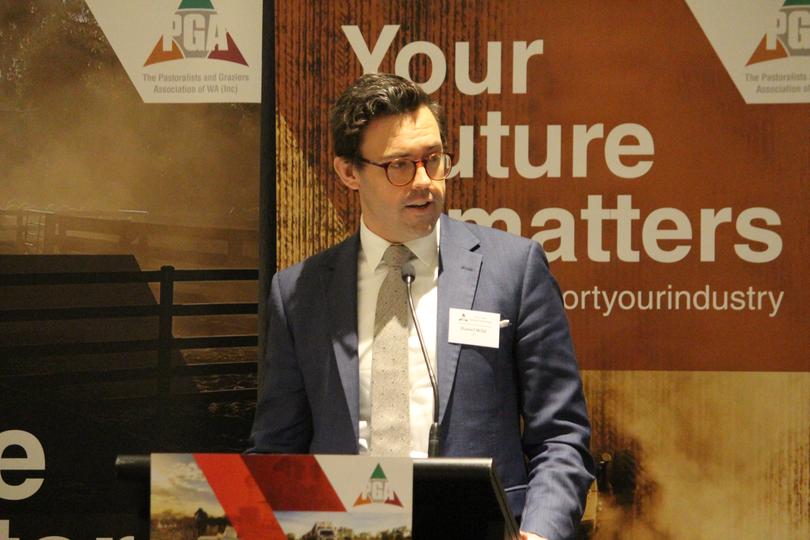
Article by Adam Poulson courtesy of the Countryman.

Red and green tape is “strangling” WA’s farming future, with the State’s environmental bureaucracy more than quadrupling since the year 2000 while employment in agriculture has declined by one-third.
That was the message from Institute of Public Affairs deputy executive director Daniel Wild in a heated keynote address at the Pastoralists and Graziers Association of WA’s annual convention in Perth on Wednesday.
Speaking to a packed room of farmers, industry figureheads and politicians, Mr Wild revealed the findings of IPA’s damning new report analysing the comparative growth of Australia’s environmental bureaucracy and agricultural sector.
The report, dubbed Australia’s Green Tape Army, found the cost of WA’s environmental bureaucracy had grown at more than five times the rate as the size of the State’s agriculture sector over the past 22-years.
“Since the year 2000, WA’s environmental bureaucracy spending has increased by 635 per cent, yet the State’s agricultural sector has increased by only 115 per cent,” Mr Wild explained.
“This means the growth of the WA environmental bureaucracy is 5.5 times the growth of the WA agricultural sector.
“Staffing in WA’s environmental bureaucracy has increased by 320 per cent, but employment in agriculture in WA has declined by a third.
“This means that for every job created in WA’s environmental bureaucracy, 21 jobs have been destroyed in the WA agricultural sector.”
At a national level, the size of the environmental bureaucracy had grown three times faster than the agricultural sector, with the former more than tripling while employment in agriculture across Australia had declined by one-fifth.
The cost of the Federal Government’s environmental bureaucracy had grown at almost three times the rate as the size of Australia’s entire agriculture sector.
And for every job created in the Federal environmental bureaucracy, 14 jobs had disappeared in the nation’s agricultural sector.

Mr Wild said despite pledges from successive State and Federal governments to relieve farmers of burdensome regulation, the evidence was clear red and green tape — and the bureaucrats that administered it — continued to increase.
For context, he said the number of people employed in environmental departments and agencies nationwide — the “green tape army” — was now 20 per cent greater than the number of soldiers serving in Australia’s “regular army”.
“There are now a staggering 34,600 people employed by environmental bureaucracies around Australia; Australia’s actual army is just over 29,000,” Mr Wild said.
“The size of that green tape army has more than doubled since 2000, but our actual army has increased by a fifth.”
Mr Wild also took aim at legislation currently before the Federal Senate to enact a policy of net zero emissions nationwide by 2050.
If approved, he said the legislation would “unleash a torrent of green activism” that would lead to even more headaches for farmers.
“The legislation of net zero will provide an almost limitless remit for government intervention and harassment of the agricultural sector and environmental legal activism, which will add more red tape and delays to critical agricultural projects through protracted and vexatious litigation and never ending court action,” he said.
“Our analysis has shown that practically any major carbon emitting project — such as the construction of a dam, rail lines, or critical road infrastructure — could be now the subject of legal challenge as a direct result of the legislation of net zero.”
Mr Wild urged State and Federal Governments to show leadership by taking “concrete action” to alleviate the regulatory burden on farmers.
He also praised the PGA for “fearlessly” standing up for pastoralists, graziers and regional WA more broadly.
The Institute of Public Affairs is an independent, non-profit public policy research organisation.
Other speakers included PGA president Tony Seabrook, WA Opposition Leader Mia Davies, opinion writer and commentator Gemma Tognini, and Pastoral Lands Board chair Tim Shackleton.
The convention will be capped off with a gala dinner incorporating PGA’s annual Achievement Awards presentation.